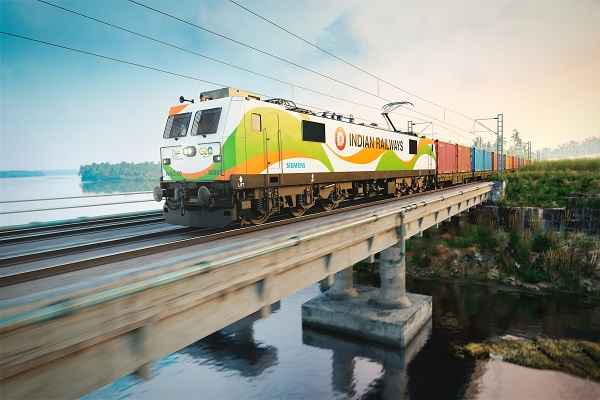 India is not just a market, it is becoming a beacon of hope for the future: Siemens AG
India is not just a market, it is becoming a beacon of hope for the future: Siemens AGSATEBA acquires Rail Business of De Bonte Group in Belgium
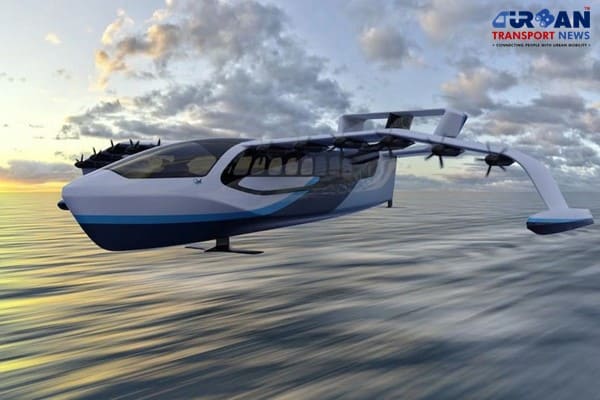 Regent to launch High-Speed Seagliders to transform coastal transportation in UAE
Regent to launch High-Speed Seagliders to transform coastal transportation in UAE California commences construction on $12bn Los Angeles - Vegas High Speed Rail Project
California commences construction on $12bn Los Angeles - Vegas High Speed Rail Project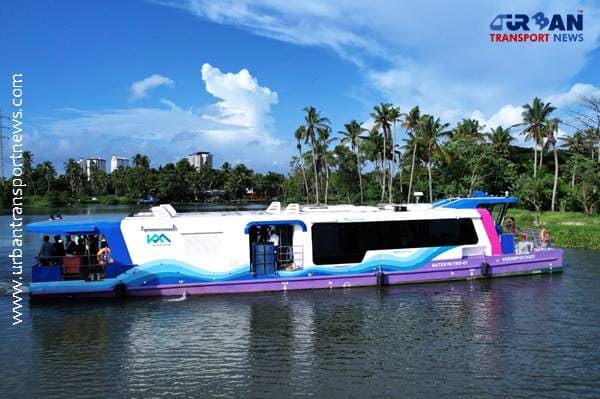 Kochi Water Metro floats tender to procure 15 more electric-hybrid ferries
Kochi Water Metro floats tender to procure 15 more electric-hybrid ferries Siemens Mobility-Hassan Allam Construction JV Sign Contract for UAE – Oman Railway Link
Siemens Mobility-Hassan Allam Construction JV Sign Contract for UAE – Oman Railway Link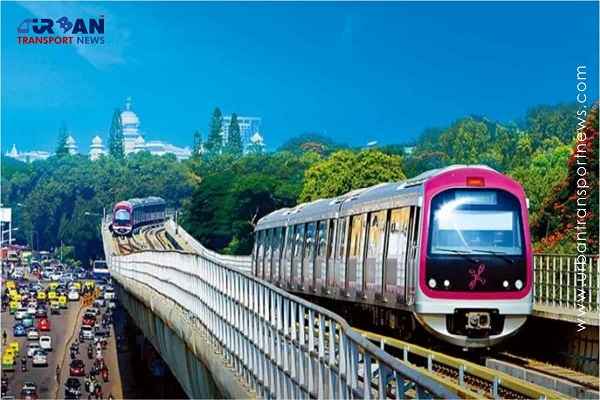 What is better public transport option for Bengaluru - RRTS or Metro Expansion?
What is better public transport option for Bengaluru - RRTS or Metro Expansion?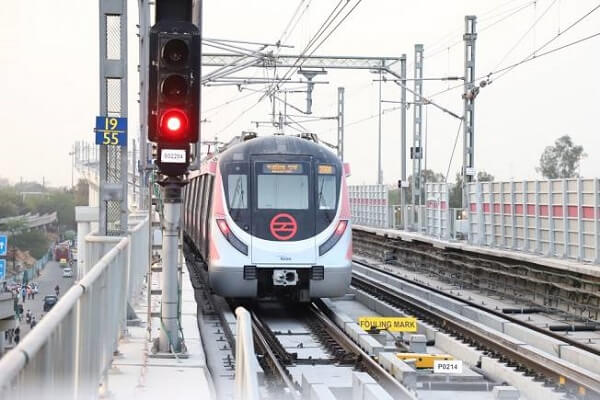 Behind Closed Doors: Corruption Uncovered in Delhi Metro's Top Management
Behind Closed Doors: Corruption Uncovered in Delhi Metro's Top Management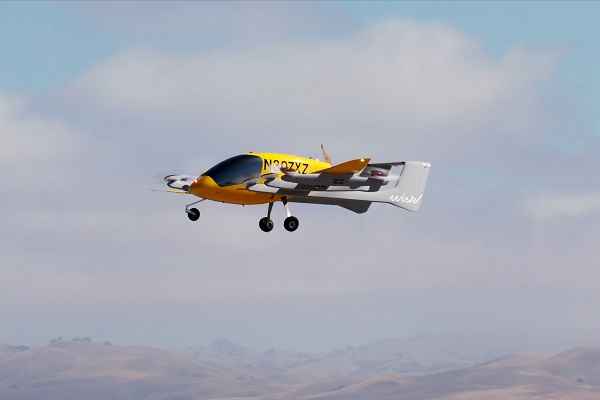 IndiGo to launch Urban Electric Air Taxis between Delhi to Gurugram
IndiGo to launch Urban Electric Air Taxis between Delhi to Gurugram Swisspod secures Strategic Investment to advance the Hyperloop Transportation
Swisspod secures Strategic Investment to advance the Hyperloop Transportation
Latest innovations shaping the urban mobility sector across the globe
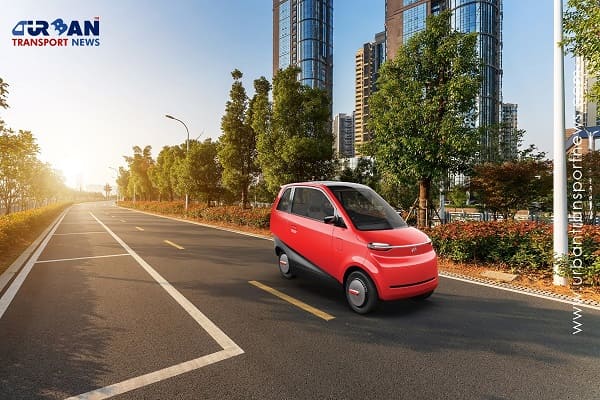
The urban mobility sector is experiencing a rapid transformation driven by technological innovations that promise to revolutionize the way we move within cities. From electric vehicles (EVs) to quantum computing, these advancements are reshaping vehicles and influencing the entire mobility ecosystem. Let's delve into the latest innovations shaping urban mobility across the globe.
Electric Vehicles (EVs): Driving Towards a Greener Future
The rise of electric vehicles (EVs) marks a significant shift towards sustainable transportation. With their environmental benefits and increasing accessibility, EVs are gaining traction among consumers worldwide. As charging infrastructure continues to expand and battery technology advances, EV adoption is expected to accelerate, reducing reliance on traditional fossil fuel-powered vehicles.
Autonomous Driving: Paving the Way for Self-Driving Vehicles
Autonomous driving technology is making strides, with major investments fueling research and development in this field. From advanced driver assistance systems to fully autonomous vehicles, companies are pushing the boundaries of what's possible. As algorithms improve and safety measures are enhanced, we can anticipate more breakthroughs in autonomous driving, paving the way for safer and more efficient transportation systems.
Connectivity: Transforming Vehicles into Smart Mobility Solutions
Advanced connectivity is revolutionizing mobility by transforming vehicles into smart, interconnected devices. With features like real-time traffic updates, predictive maintenance, and seamless integration with other devices, connected vehicles enhance safety, efficiency, and convenience for passengers and operators alike.
Shared Mobility: Embracing Collaborative Transportation Solutions
Shared mobility services such as scooters, e-bikes, and ride-sharing platforms are gaining popularity as consumers seek alternative transportation options. These innovative services offer flexibility and convenience, encouraging individuals to forego private vehicle ownership in favor of shared mobility solutions. Expect to see continued growth and diversification in shared mobility offerings catering to various transportation needs.
Quantum Computing: Unlocking New Possibilities in Mobility Management
The emergence of quantum computing holds the promise of solving complex mobility challenges efficiently. With its unparalleled computational power, quantum computing can revolutionize logistics, route optimization, and traffic management, leading to more streamlined and efficient transportation systems.
Web3 and Blockchain Technology: Reinventing Mobility Transactions
The decentralized web (Web3) and blockchain technology are disrupting various industries, including mobility. By enhancing security, transparency, and trust in mobility transactions, blockchain technology has the potential to revolutionize the way we exchange value within the mobility ecosystem, driving greater efficiency and accountability.
Immersive Reality Tech: Enhancing User Experiences in Mobility
Augmented reality (AR) and virtual reality (VR) technologies are transforming user experiences in mobility. From navigation assistance to interactive displays within vehicles, these immersive technologies offer novel ways to engage passengers and enhance their journey experiences, leading to increased satisfaction and loyalty.
Cloud and Edge Computing: Powering Real-Time Data Processing
Cloud-based solutions coupled with edge computing enable real-time data processing, enhancing vehicle performance, safety, and efficiency. By leveraging the power of the cloud and edge computing, mobility providers can deliver seamless and reliable services that meet the evolving needs of passengers and operators.
Roboshuttles and Urban Air Taxis: Redefining Urban Transportation
As technology advances, we may see the emergence of shared autonomous minibuses (roboshuttles) and urban air taxis, offering innovative solutions for urban transportation challenges. These futuristic modes of transportation have the potential to transform how people move within cities, providing faster, more efficient, and environmentally friendly mobility options.
Sustainability: Driving Towards a Greener Mobility Future
Innovations in sustainable materials, energy-efficient designs, and circular economy principles are driving the transition towards a greener mobility future. With a growing focus on reducing environmental footprint, mobility companies are increasingly embracing sustainability practices throughout the entire product lifecycle, from design and manufacturing to end-of-life disposal.
Navigating the Future of Urban Mobility
The latest innovations in the urban mobility sector are reshaping the way we move within cities, driving towards a more intelligent, seamless, and environmentally friendly transportation system. As technology continues to evolve, we can expect to see further advancements that will transform urban mobility, offering new opportunities for innovation, efficiency, and sustainability in the years to come.







